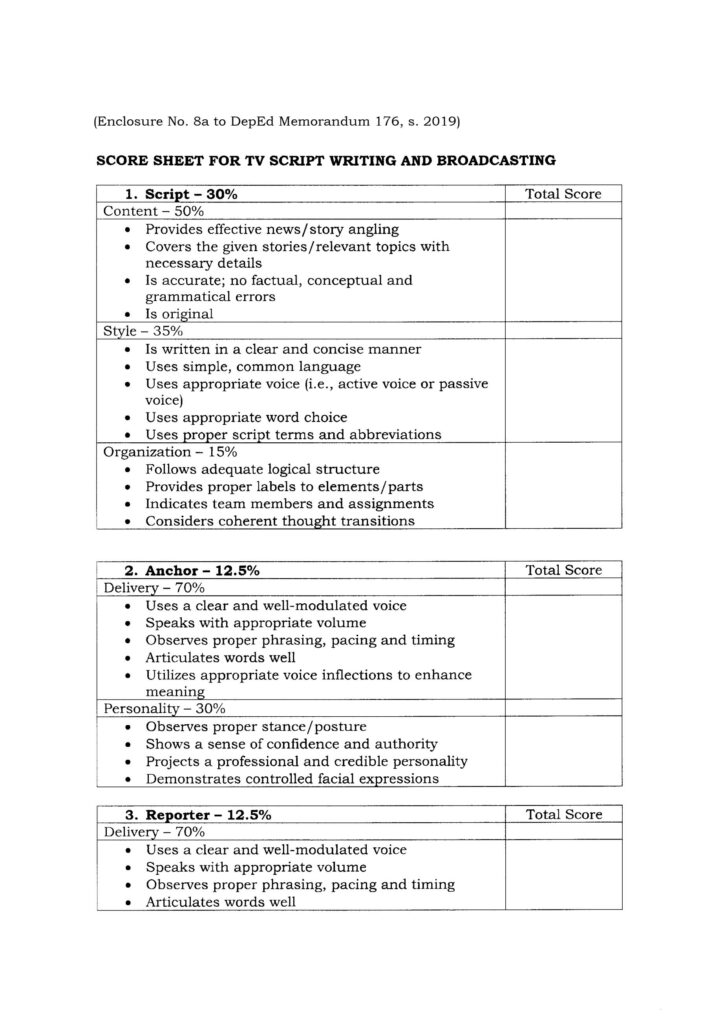European Parliament Ambassador School
Thursday, 22 December 2022
Tuesday, 20 December 2022
Cultural Divesity
What is cultural diversity?
Cultural diversity is where a society or group is made up of many different people. These people are from different countries, races and religions, and have different interests, skills and beliefs. Seven important actions involved in the definition of multiculturalism:
- recognition of the abundant diversity of cultures;
- respect for the differences;
- acknowledging the validity of different cultural expressions and contributions;
- valuing what other cultures offer;
- encouraging the contribution of diverse groups;
- empowering people to strengthen themselves and others to achieve their maximum potential by being critical of their own biases; and
- celebrating rather than just tolerating the differences in order to bring about unity through diversity.
Why is it important?
Multiculturalism has many benefits. The main one is that it encourages open-mindedness amongst different groups of people and it dispels negative stereotypes. This is extremely important as the UN reported that 1/3 of the world’s major conflicts have a cultural dimension to them.
Not only does cultural diversity promote peace, but it also makes our society a more interesting place to live. Different cultures have their own beliefs and interests which they can share to offer alternative ways of doing things. People from different cultures can give us different insights into food, language, music, arts & literature, history, religion and more.
Video about what cultural diversity is and why it is important in today’s society.
For more information about cultural diversity please visit un.org/en/observances/cultural-diversity-day
Use of English. Exercises:
Read the sentences below and match the underlined words to their definitions:
1. I’m in the mood for something spicy. I fancy an Indian meal.
2. Many people are able to converse in more than one language.
3. The new report will downplay the seriousness of global warming.
4. George knows how to cook. His culinary skills are excellent.
5. China has a vast population.
6. She sent her son to a private school because of its prestige.
a. feel like
b. make something appear less important than it really is
c. related to cooking
d. respect and admiration that someone or something gets for being successful or important
e. talk
f. very large
Read the article on the next page and find out the following information: In numbers:
1. the number of different languages spoken in Manchester
2. the population of Manchester
3. the number of young people who are able to speak more than one language
4. the growth in Manchester’s population between 2001 and 2011
5. the number of children who arrive in Manchester every year
Games:
https://frommanylands.com/activities/board-game-world-languages
https://frommanylands.com/activities/board-game-folk-dance-around-the-world
https://frommanylands.com/activities/matching-where-do-i-live-game
Wednesday, 14 December 2022
Tenses. Review. USE OF ENGLISH
VERBAL TENSES: https://test-english.com/grammar-points/b1-b2/narrative-tenses/3/
DISCOURSE MARKERS: https://test-english.com/grammar-points/b2/discourse-markers/
UNREAL PAST: https://test-english.com/grammar-points/b2/unreal-uses-past-tenses/
CONDITIONALS: https://test-english.com/grammar-points/b2/all-conditionals-mixed-conditionals-alternatives-if-inversion/
ALL TENSES: https://lingbase.com/en/english/grammar/all-tenses/exercises
XMAS IS JUST AROUND THE CORNER
A set of popular vocabulary game based on Taboo. Download here>>>>>christmas-forbidden-words1
1) Do you enjoy Christmas shopping, or do you find it a chore?
2 How early do you do your Christmas shopping?
3) Who do you buy Christmas presents for?
4) Have you ever shopped online for Christmas presents?
5) Do you give your Christmas gifts in bags, or wrap them in paper?
6) Which member of your family is the hardest person to buy for? Why?
7) Which member of your family is the easiest person to buy for? Why?
8) What was the best Christmas present you ever received? Why?
9) What was the worst Christmas present you ever received? Why?
10) Have you ever returned a Christmas present and exchanged it?
11) Have you ever bought Christmas presents in the sales, to put away for the next year?
12) Have you ever given hand-made Christmas presents to people?
13) When do you usually finish your Christmas shopping?
14) Do you feel Christmas has become too commercialised?
15) What are you hoping to get for Christmas this year?
Video Info: What do you know about Xmas?
Tuesday, 13 December 2022
On Air. Radio Show
Oral Interaction:
On a new series of podcast from our students, we focus on some topics which "catch our ears".
Commenting on current affairs, recently-passed laws and restrictions are on the spot, as well as sustainability worries about consumerism and frenzy shopping or some ethical red lines not to be trespassed for widespread dilemmas and animal vs human rights.
Quite interesting talk show, including a Christmas reflection, contrasting aspects which make up our students state of the question as ambassadors of the European citizenship.
Hope you enjoy it and thanks to all the participants and technicians which make it possible.
Thursday, 8 December 2022
Superstitions
Complete each gap with an appropriate form of the root word in brackets. You may need to add a prefix or suffix or use a plural form to fit the sentence.
1. This place has such great ______________ for me. I remember the wonderful holidays we used to have here when I was a child. (associate)
2. My parents were really happy when my sister got engaged. They gave her their ________________. (bless)
3. Henry? Is that you? I can’t believe you’re on holiday in the same hotel as we are, during the same week. What a ________________ ! (incident)
4. I’m sorry, but I’ve got an ___________________ fear of dogs. I don’t know why I feel this way, but I just can’t be near them. (rational)
5. She uses ___________________ from the fashion industry to make beautiful handbags. (remain)
6. You think we know what we’re doing? I’m afraid not - it’s all an ________________ ! (illusory)
Complete each gap in the notes with three words from the video.
- After all
- Along the same lines
- believe it or not
- Besides
- Of course
- Similarly
- So
- somehow
- Well
We use these words to make predictions about the future, often based on superstitions. Read these sentences and then underline four verbs and circle four nouns that relate to this function.
1. A high fever presaged more severe or long-term effects of the disease in some patients.
2. This is a sign that the economy is recovering.
3. High unemployment may foreshadow social unrest.
4. I saw a rainbow on my way to the job interview. This must be a good omen.
5. It doesn’t bode well that the hotel has lost our booking.
6. Many people see this company as a bellwether showing important trends for the future of this market.
7. Some people say that a red sky at dawn is a portent of bad weather.
8. Your marks on the practice exam augur well for the future
KEY:
VOCABULARY:1. associations 2. blessing(s) 3. coincidence
4. irrational 5. remnants 6. illusion
LISTENING: 1. weird and specific 2. at a table 3. the thirteenth floor 4. protection or blessing 5. coincidences and associations 6. life had ended 7. The number 14 8. cause an accident 9. Lighting three cigarettes 10. make you uncomfortable 11. require much effort 12. having greater control
WRITING:LINKERS: 1. So 2. Well 3. Of course 4. somehow 5. Similarly 6. believe it or not 7. Along the same lines 8. After all 9. Besides
Very superstitious,
Ladders bout' to fall,
Thirteen month old baby,
Broke the lookin' glass
Seven years of bad luck,
The good things in your past
That you don't understand,
Then you suffer,
Superstition aint the way
Wash your face and hands,
Rid me of the problem,
Do all that you can,
Keep me in a daydream,
Keep me goin' strong,
You don't wanna save me,
Sad is the soul
That you don't understand,
Then you suffer,
Superstition ain't the way,
Yeh, yeh
Nothin' more to say,
Very superstitious,
The devil's on his way,
Thirteen month old baby,
Broke the lookin' glass,
Seven years of bad luck,
Good things in your past
That you don't understand,
Then you suffer,
Superstition ain't the way,
No, no, no
Karaoke training: https://es.lyricstraining.com/play/stevie-wonder/superstition/HFPTX6wxWF#a7w
Sunday, 4 December 2022
Interaction. Radio Talk show
ETHICS:
- Do you consider yourself to be an ethical person?
- Have you ever found a smart phone? What did you do? If you haven’t, what do you think you would do?
- Would you risk your life to save another person?
- Would you jump into a deep river to save a drowning animal?
- What should a person do if they find a wallet? What do people usually do? What would you do?
- What are some ethical dilemmas you have faced?
- Is stealing ALWAYS wrong? When is it right to steal?
- If you could save people by killing one person, would you?
- How often do you lie? When is it okay to lie?
- What makes a person act ethically or unethically?
- If you saw a pickpocket stealing someone’s wallet what would you do?
- Should poor people be punished for stealing if they are stealing to feed their family?
| (1) | What comes to mind when you hear the word ‘smoking’? | ||||||||||||||||||||||||||||||||||||||||
| (2) | Smoking kills. Why don’t people understand this? | ||||||||||||||||||||||||||||||||||||||||
| (3) | Is smoking a problem in your country? | ||||||||||||||||||||||||||||||||||||||||
| (4) | Why do people start smoking? | ||||||||||||||||||||||||||||||||||||||||
| (5) | Why do you think it is so difficult for people to give up and quit smoking? | ||||||||||||||||||||||||||||||||||||||||
| (6) | Do you get angry about passive smoking – breathing in second-hand smoke? | ||||||||||||||||||||||||||||||||||||||||
| (7) | Do you think smokers should pay higher health costs? | ||||||||||||||||||||||||||||||||||||||||
| (8) | Should Hollywood, Bollywood, etc. show smoking in movies? | ||||||||||||||||||||||||||||||||||||||||
| (9) | Do you know any chain smokers? How could you get them to stop? | ||||||||||||||||||||||||||||||||||||||||
| (10) | Which is worse for your health, smoking every day or drinking every day?
|
Friday, 2 December 2022
Mediation
https://eoienglishclass.weebly.com/mediation.html
What is mediation in English teaching?
Have you ever noticed how your understanding of something often develops when you try to explain it to someone else? That’s the result of mediation, a core facet of communication that occurs when we take into account the needs of others, and adjust our own expression accordingly. When we mediate, we don’t just think about what to say, but also how to say it. This often results in new meanings and ways of communicating them as a result. In general, mediation includes activities that:
- Aid understanding between people
- Make things more comprehensible
- Make connections between ideas and information
- Support ‘talking things through’ to reach new conclusions
How does the mediation fit in the CEFR?
Mediation has become a hot topic of discussion in language learning recently because the concept has been significantly updated in the CEFR (Common European Framework of Reference for Languages).
The CEFR now gives us detailed descriptions of what learners ‘can do’ in a whole range of mediation activities at levels A1-C2. These descriptors have been published in the CEFR ‘Companion Volume’ (2018).
A key thing to note here is that the CEFR doesn’t break things down into four skills of listening, reading, speaking and writing. Instead it describes four ‘modes’ to better reflect how communication occurs in real life:
- Reception: comprehension in listening and reading
- Production: formulating something new to say or write
- Interaction: engaging in conversation or written exchanges
- Mediation: adjusting the message for the recipient





